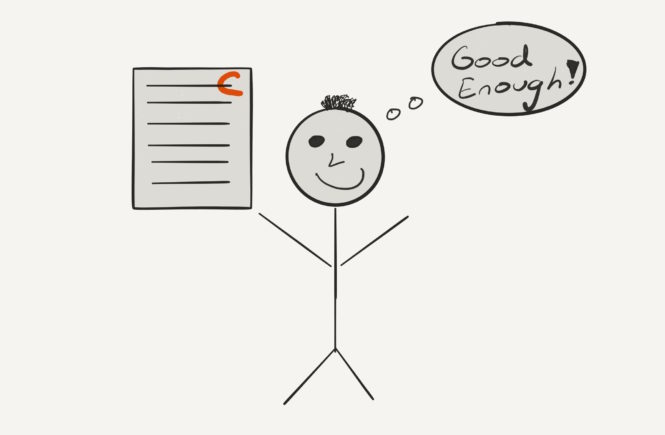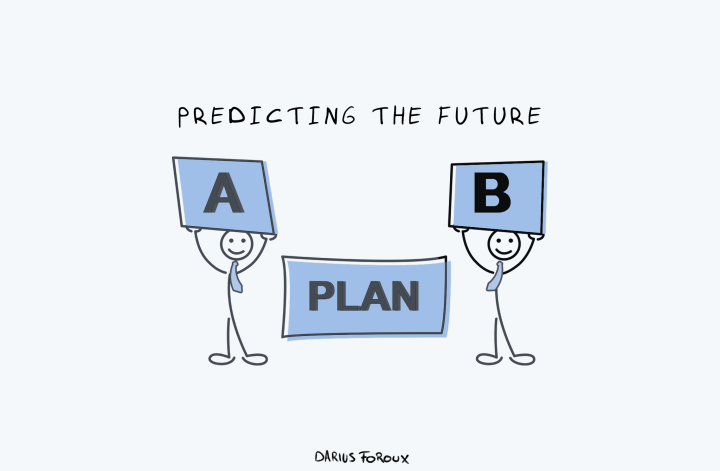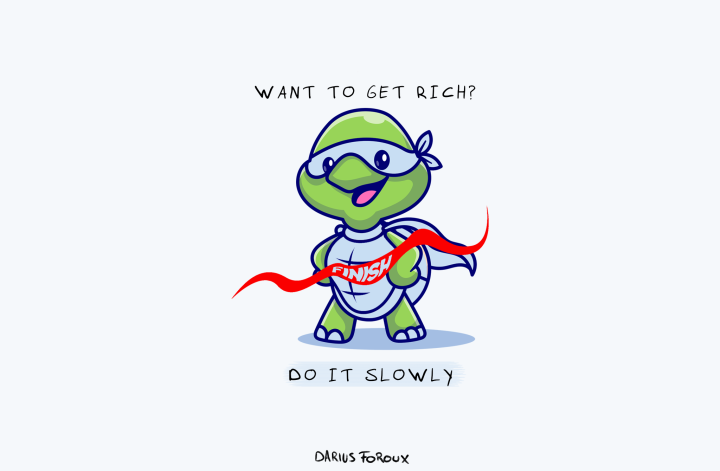The word, “coach” has been around since the 1800s and was used for private tutors. Eventually, coaches became dominant in sports. But in recent decades, coaching applies to almost every field. Because it’s a relatively new phenomenon, there are a lot of questions and challenges around coaching.
In this guide, I’ll address the most common questions and challenges with hiring a coach. By the end of this guide, I hope you know what a coach does, whether you should work with one, and how to hire the best coach for you.
What does a coach do?
A coach is someone who shows others how to improve a particular skill or process. They help a person (or a group) towards a specific goal to succeed. Here’s what a coach does not do:
- Do the work for you
- Give you the magic answer
- Hold your hand
- Give you compliments when you screw up
You get the idea. Anyone who’s played team sports knows this. Sports coaches have one goal: To win. And they do everything to show their team how to improve themselves so they can win. But the coach doesn’t do the winning itself. The players do.
That’s the same thing for any type of coaching.
“When am I ready to work with a coach?”
I actually like to work with coaches. And I generally think it’s more effective to work with a coach when you’re serious about a particular skill or process. Let me give you a few examples:
- Building a career: Some coaches can help with interviewing techniques, negotiating raises, switching careers, etc.
- Building a business: A coach can help you grow your business by advising you on things like hiring, marketing strategy, sales, etc.
- Learning a skill: A coach can teach you any type of skill: Writing, coding, tennis, playing the guitar, learning a language, and so forth.
- Getting in shape: There are a lot of coaches in the health and fitness field. You can work with a coach to improve your strength, stamina, diet, etc.
As you can see, the above examples all focus on a skill or process. Let’s say you’re building a business and have been seeing decent growth for two years. But now, you want to take it to the next level. A business coach who has experience with growing a company can help with that process.
In general, I only recommend working with a coach when you’re truly committed to succeeding at something. Otherwise, it’s a waste of both of your time.
And when it comes to business/careers, hire a coach when you’re ready to take things to the next level. It doesn’t make sense to hire a coach when you’re just starting out. When you start a business, it’s better to read books and take courses in the beginning.
Get your first clients or customers, and then hire a coach who can help you with growing your business.
Benefits of hiring a coach
Let me give you an example of how I work with a coach. Several years ago, I started training in Brazilian Jiu-Jitsu (BJJ). But going to group classes didn’t help me progress that fast. You’re often matched with other beginners, so you both have no clue what you’re doing.
And the instructor can’t oversee everyone all the time. What’s worse, during sparring, you get matched with another person who often tries to teach you stuff. But that guy is not a teacher. He’s teaching you the wrong thing.
That’s a matter of the blind leading the blind. That’s why I took 1-on-1 lessons after a few group classes. My coach ensures that my posture and execution are correct.
Coaching saves you a lot of time
Otto von Bismarck once said: “Only a fool learns from his own mistakes. The wise man learns from the mistakes of others.”
Coaching is for people who are serious about their progress. It’s also about making the best use of your time. While there are no shortcuts in life, there are certainly detours.
When you set out to do something on your own, you can only rely on your own experience. That results in a lot of time-wasting. As an amateur in any field, you’ll make beginner mistakes. It’s better to rely on the knowledge and experience of masters to avoid those mistakes.
Accountability fast-tracks your progress
A lot of our goals often fall short because they’re either unrealistic, or someone isn’t there to help us maintain our progress. This is where a coach becomes useful. Coaches can help inspire you to accomplish both small and big goals. They empower you to stay focused and maintain consistent progress.
Also, having someone encourage you along the way can significantly impact your motivation.
Most of the time, we are our own greatest enemy when we’re trying to improve ourselves, careers, and lives. Coaches can provide you an unbiased point-of-view and constructive criticism. With the help of a coach, you can see beyond your self-limiting beliefs.
How to find the right coach
Now that you’ve determined that you need to hire a coach, how do you go about finding the right coach who fits your needs? Hiring coaches is often more expensive than, say, purchasing an online course.
Also, depending on the skill or process you’re trying to improve, you’ll likely work with your coach for a long time.
Bottom line: Choosing the wrong coach will cost you a lot of money and time. So you want to choose the right coach who will best fit your needs. Here are some of the things you should look out for, and several questions to reflect on, to find the right coach:
What credentials and experience are important?
An executive coach with a lot of experience managing multinational conglomerates is not the best person to coach a solopreneur. When looking for a coach, always consider the following questions:
- Has your coach helped similar people with similar challenges as you?
- What has the coach achieved in their own life?
- What kinds of clients have they worked with in the past?
- Have the clients achieved what you’re aiming to achieve, and have had great success?
I’m personally not about credentials, certifications, and degrees. Who cares? I care about results and what a coach has performed in their own lives. If someone has never built a successful business, I don’t expect them to teach others how to do it.
Determine the best coaching method
How do you want to be coached? With the pandemic nowadays, most coaching happens virtually. But even with virtual coaching, styles can still differ.
The point here is, to be honest with your personal preferences. For example, some people have to work with someone local.
This is especially true if you’re looking for a strength-training coach. You’ll likely want someone who can easily correct your posture or adjust your execution to maximize the effects of the exercise.
For instance, I’m currently working with a language coach/teacher to learn Spanish. Her style is very laid back and we don’t speak Spanish all the time. I like that a lot. But some people are very strict, they don’t answer in another language but the one they are teaching. I can’t stand that. But others love it.
Chemistry Matters
This is quite obvious, but it’s important to always consider your chemistry with your prospective coach. Talk to them for 15 minutes or so. A good sign is when you feel inspired by your discussion, and excited to get back to improving your skill/process.
This often means the coach is helping you commit to doing the work. You’re also inspired to grow.
Different coaches offer different approaches, styles, views, and energy to each coaching session. So always have a discovery call to figure out whether it’s a good fit.
Stay in the game: Most people quit
Rener Gracie, a well-respected BJJ teacher, and practitioner said in one of his videos that, “over 90% of people who begin the Jiu-Jitsu journey never make it to blue belt. And 99% of people who make it to blue never make it to black.” (Blue is the second rank).
In other words, only 1% of people obtain the highest rank of this complex martial art. It’s not a surprise. It often takes 10 years to get to a black belt—that’s how complex it is. BJJ is a good example of the famous 10,000 hours rule.
You see these types of numbers with every single complex thing in life. Most of us quit mid-way. And we must acknowledge that. Every time I write a new article, I know the odds are against me. I’ve been blogging for nearly 6 years and I’ve seen a lot of bloggers come and go in that period.
I know I can be next if I don’t keep at it. I have the same mindset when I practice BJJ. I realize that giving up is just around the corner. Now, I’ve quit many times. A few months ago, I injured my hip. Instead of moving forward with training, I quit for two months and increased the strength in my hips and glutes. After that, I got back at it stronger.
Whether you decide to work with a coach or not after reading this article, keep in mind that there is no one way to succeed (whatever that looks like to you). Every coach has their philosophy. And some coaches just won’t be a good fit.
So if you decide to work with a coach, give it a try first, and if it’s not for you, move on. What matters the most is that you make progress, and a good coach should help with that.




